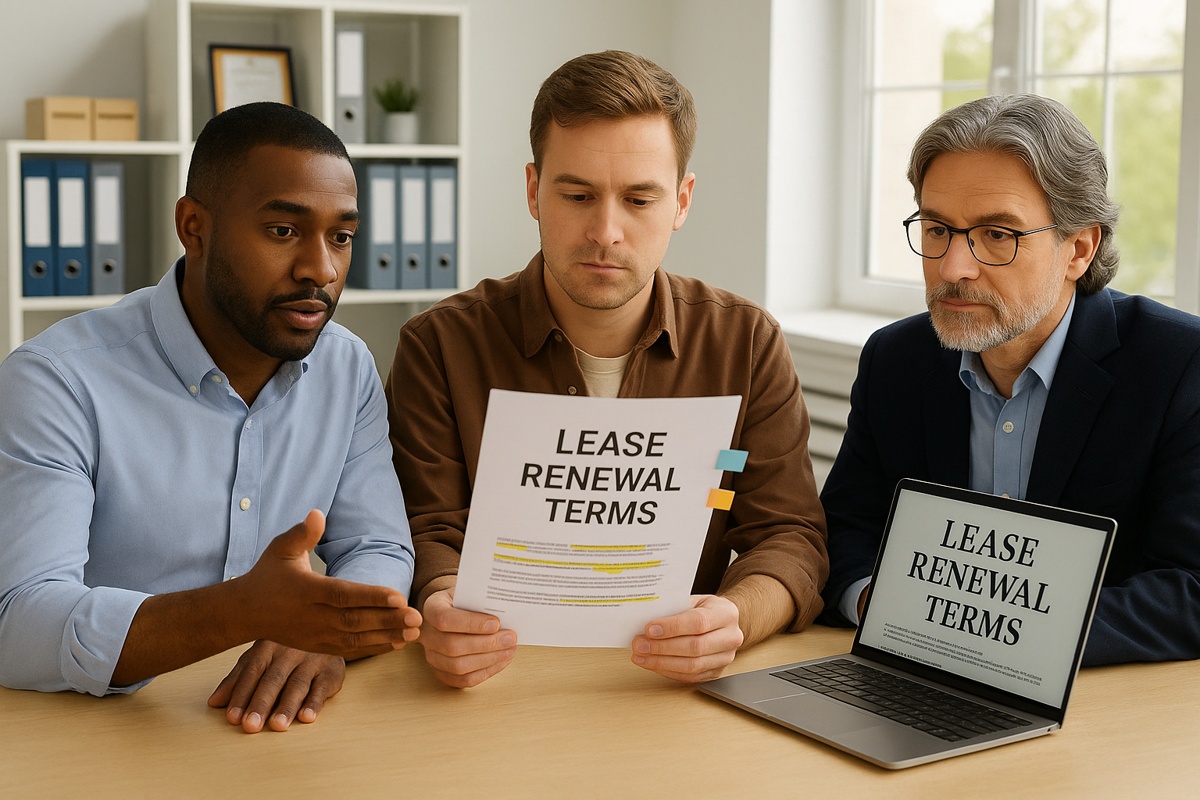
Renewing a lease may seem like a simple step, but for Florida landlords, it’s a key moment that can determine the stability and profitability of a property. Whether managing office space, retail locations, or industrial sites, a smart lease renewal strategy helps keep dependable tenants, reduce turnover costs, and maintain consistent cash flow. Without proper planning, landlords risk losing strong tenants or accepting renewal terms that don’t reflect market value.
The Importance of Renewal Planning
Successful renewals start long before a lease expires. Florida landlords should begin reviewing each tenant’s lease at least six to twelve months in advance. This timeframe allows for market evaluation, tenant assessment, and negotiation preparation. It also provides room to identify potential vacancies and plan for replacements if a tenant chooses not to renew.
Landlords who delay this process often face unnecessary stress and lost revenue. Early communication builds trust and gives tenants the confidence that their landlord values a long-term relationship. It also positions the landlord to make strategic decisions rather than rushed ones.
Evaluating Tenant Performance and Market Conditions
Before making any offer, a landlord should assess both the tenant’s performance and current market conditions. Reliable tenants who pay rent on time, maintain the property, and contribute to a positive environment are worth retaining, even if the rent increase is moderate. A poor-performing tenant, however, may not justify renewal at any rate.
At the same time, landlords should study the local market to understand fair rental values, comparable property rates, and tenant demand. In Florida’s competitive commercial market, a well-researched renewal proposal ensures the rent stays competitive without discouraging tenants. The balance between tenant loyalty and market growth is often where the best outcomes are found.
Negotiating the Renewal Terms
Negotiation is the heart of every lease renewal. It’s the moment to adjust rent, review operating expenses, and update clauses that may no longer align with the property’s current needs. A strong lease renewal strategy involves knowing which terms to keep and which to modify.
Rent escalations should reflect both inflation and market appreciation. Landlords may also consider adjusting maintenance obligations, parking rights, or signage use depending on tenant type. In multi-tenant properties, it’s also an opportunity to ensure uniformity in key terms like renewal options, operating cost contributions, and subleasing permissions.
Equally important is communication. Presenting the renewal terms clearly, with justification for any increases or changes, helps maintain goodwill and avoid disputes. Tenants are more likely to renew when they understand that proposed adjustments are fair and supported by market data.
Structuring Renewal Options in Advance
Many landlords overlook the importance of building renewal options directly into the original lease. A well-drafted renewal clause gives both landlord and tenant predictability and reduces uncertainty. These clauses can define how much notice a tenant must provide, how rent will be recalculated, and what conditions must be met to qualify for renewal.
Including renewal terms upfront benefits landlords by reducing negotiation friction and maintaining control over timing. For tenants, it offers stability, allowing them to plan for continued operations. This balance creates a long-term relationship built on clarity rather than last-minute bargaining.
Avoiding Common Renewal Mistakes
Some landlords make the mistake of treating renewal discussions as routine paperwork. In reality, each renewal affects the property’s financial performance. Ignoring current market data can lead to underpricing, while pushing for excessive increases may drive away reliable tenants. Another mistake is failing to document the renewal properly. Even small changes should be captured in writing and signed by both parties to ensure enforceability under Florida law.
Additionally, landlords should never assume that silence from a tenant means acceptance. Clear written confirmation is essential, and verbal agreements can easily lead to misunderstandings later. Proper documentation protects both sides and preserves the professional integrity of the transaction.
Implementing a Long-Term Renewal Strategy
A proactive renewal strategy goes beyond one lease term. It includes ongoing communication, regular property maintenance, and consistent market review. By tracking lease expirations, monitoring tenant satisfaction, and staying current with rental trends, landlords can anticipate renewal discussions instead of reacting to them.
An organized approach also improves property valuation. Investors and buyers place higher value on properties with stable, long-term tenants under current, enforceable leases. Every successful renewal not only sustains cash flow but also enhances overall property worth.
Contact Us
Every renewal decision impacts your property’s profitability and stability. At Kleiner Law Group, we help Florida landlords develop and negotiate lease renewal strategies that protect investments, retain quality tenants, and strengthen long-term property value. Our team drafts, reviews, and updates lease agreements to ensure they comply with Florida law while reflecting current market conditions. For guidance on creating or reviewing your lease renewal strategy, call us today at 305-517-1392.